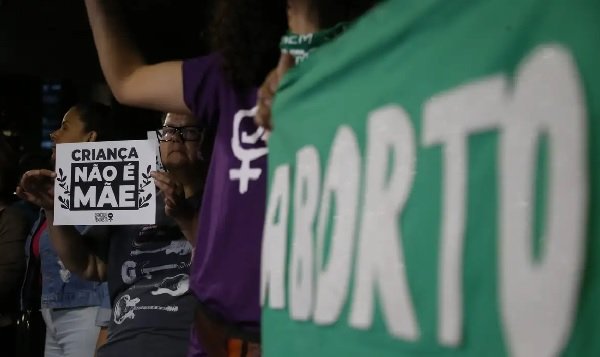A protest took place on Saturday (15/06) on Avenida Paulista, in downtown São Paulo, against the bill that equates abortion after 22 weeks of pregnancy with the crime of simple homicide. The protest began at 15:00 and it was attended by more than 50 civil society groups and entities that fight for human rights. The organization of the event estimated the number of participants in around 5,000 people, mostly women and young people.
This Content Is Only For Subscribers
To unlock this content, subscribe to INTERLIRA Reports.
Changes
The text, written by Deputy Sóstenes Cavalcante (PL-RJ), amends the Penal Code and establishes the application of a penalty in situations in which the pregnant woman:
– causes an abortion on herself or allows someone else to do so;
– have the abortion caused by a third party with or without her consent;
Sentences vary between 6 and 20 years, today sentences vary between 3 and 10 years.
Main Target
The president of the Chamber, Deputy Arthur Lira (PP-AL), was the main target of the demonstration. Mentions of the Alagoas parliamentarian were frequent in the speeches and posters used at the demonstration. Lira held a quick vote on Wednesday (12) and approved the procedure on an urgent basis. As a result, the project will be voted directly in the House plenary without undergoing analysis by committees related to the project’s theme.
Abortion Permitted by Law
Abortion is a crime in Brazil, but there are three situations in which it is permitted. The cases of legal abortion are:
– fetal anencephaly;
– a pregnancy that puts the pregnant woman’s life at risk;
– pregnancy resulting from rape.
Analysis:
The protest held on Avenida Paulista reflects growing popular dissatisfaction with the proposed law that equates abortion after 22 weeks of pregnancy with the crime of homicide. The bill proposes a significant increase in penalties for abortion, intensifying criminalization and reducing the conditions under which abortion can be performed legally and safely. This legislative tightening is seen by many as a setback in the advances made by women in terms of autonomy and rights over their bodies.
The rapid processing of the bill, promoted by the president of the Chamber, Deputy Arthur Lira (PP-AL), thus avoiding in-depth debate and consultation with experts, was interpreted as a maneuver to speed up the approval of a controversial and polarizing measure.
Sources: O Globo, G1, Agência Brasil.




